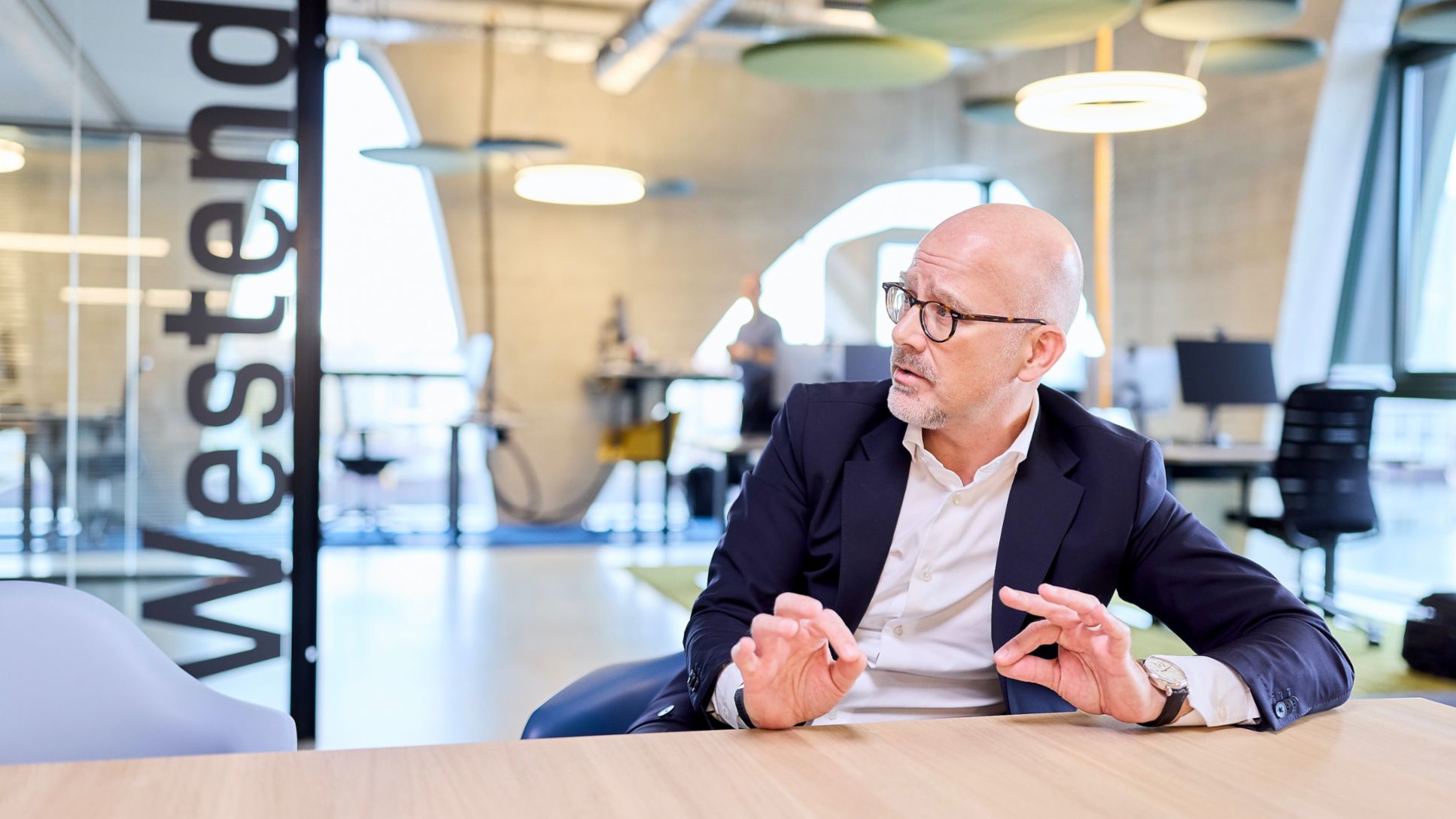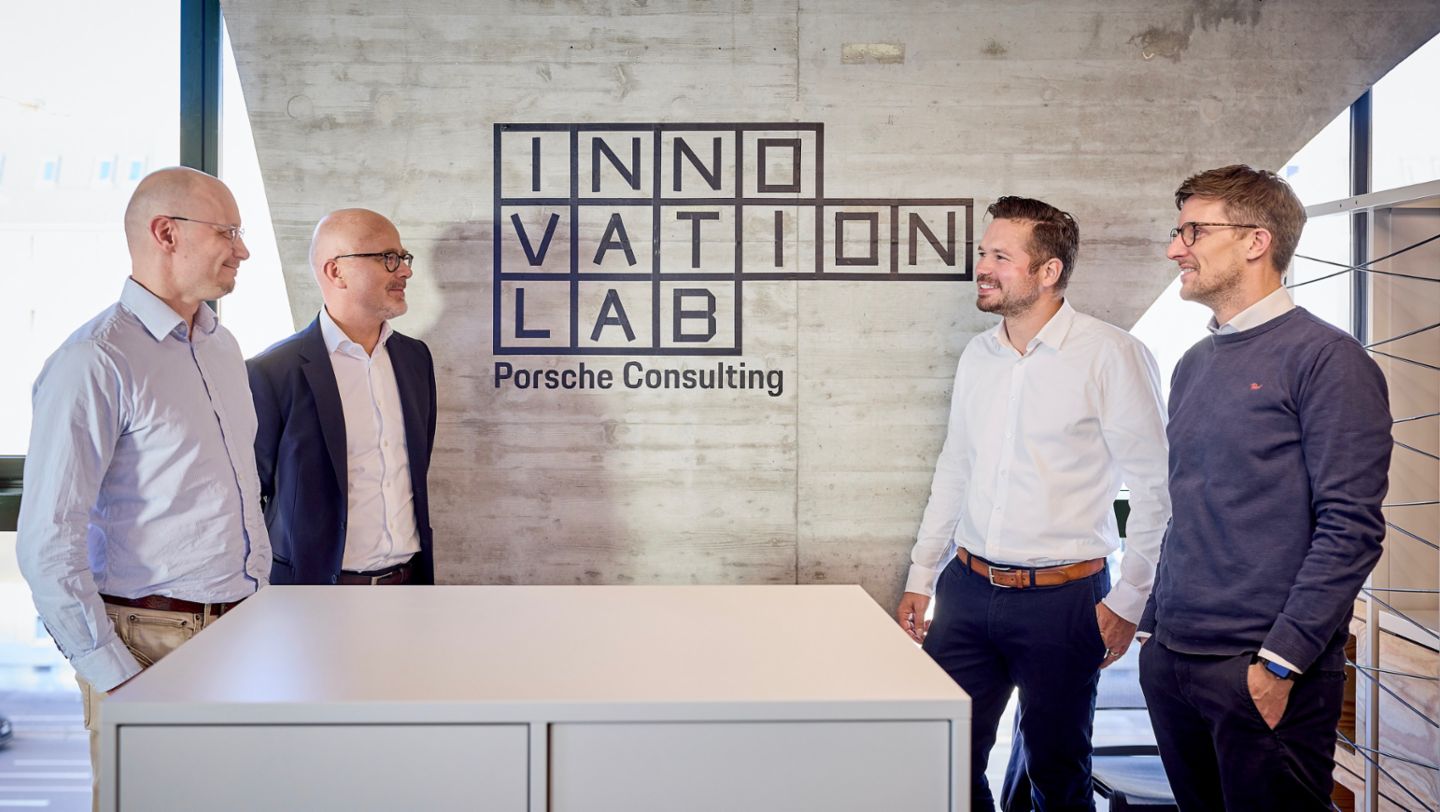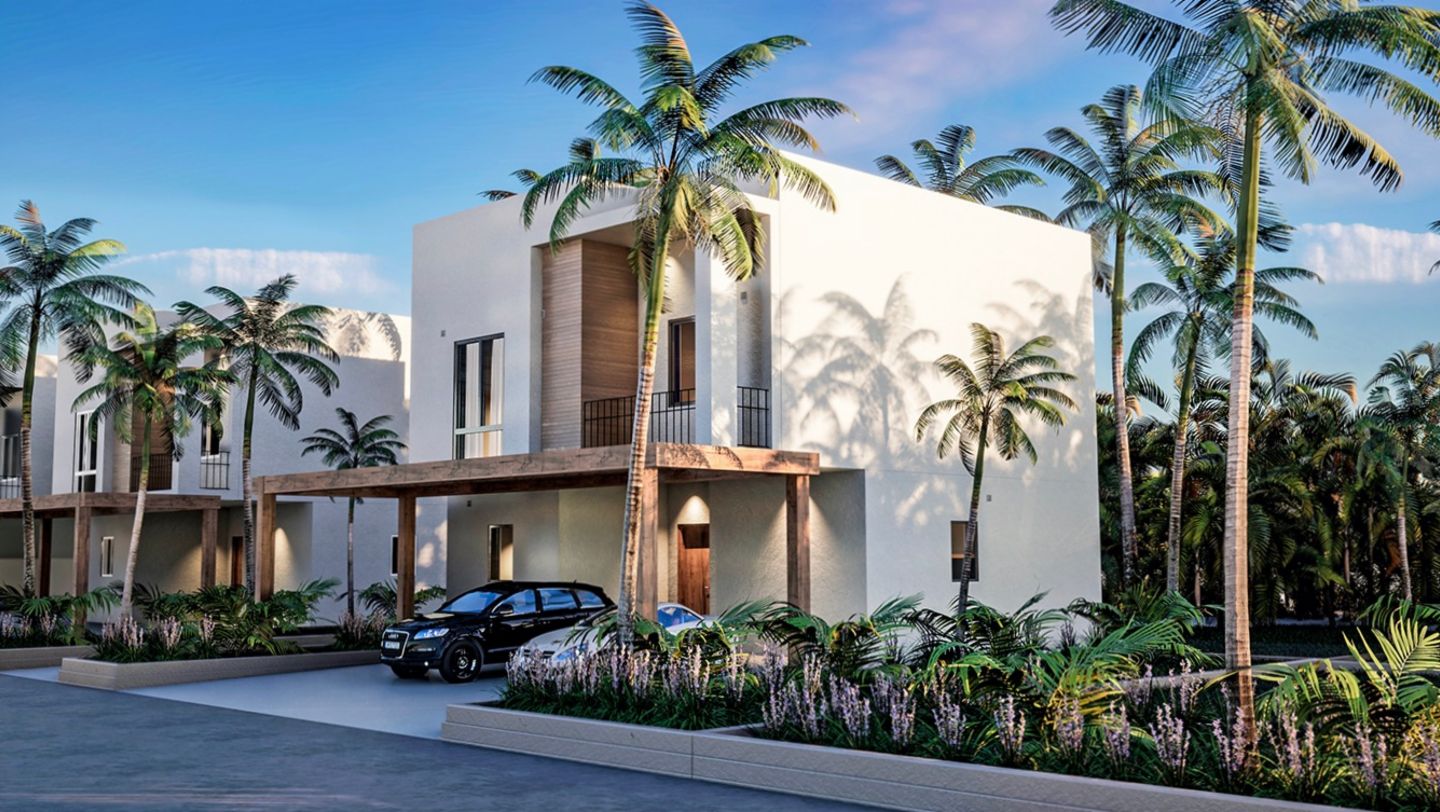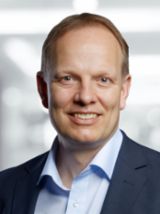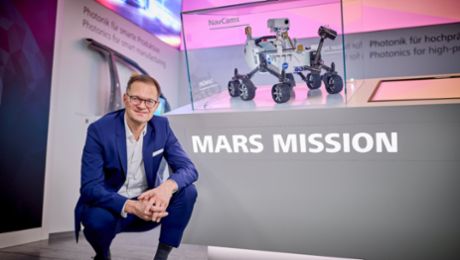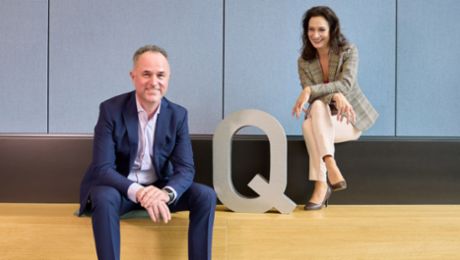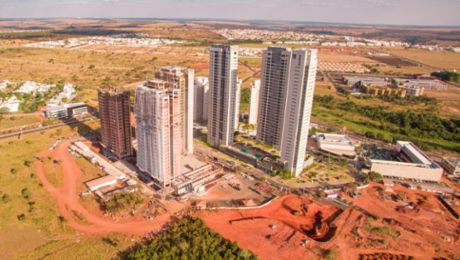Following the change of government at the turn of 2021, Germany is discovering “serial construction”: 400,000 apartments, especially in larger cities, are to be built each year—installed in the shortest possible construction time, with great planning certainty, less stress, and without significant construction noise. How will this be achieved? By prefabricating large components that can be easily fitted on site.
Can this be done? If you look at Finland, the answer is yes. Because that’s where you’ll find an innovative and very ambitious specialist for consistent factory production of the most diverse residential buildings. The groundbreaking ceremony is scheduled for 2022. Admares, a company headquartered in Turku, southwestern Finland, is building the world’s most modern construction factory, located in the Middle East. As of 2024, it expects to manufacture up to 2,200 homes per year, fully equipped and ready for plug and play installation on site. A factory of that type does not yet exist.
Since its early days as a start-up, the Finnish company has worked closely together with the Porsche Consulting management consultancy. The basic idea is clear: the CEO and founder wants to structure the company similar to the successful sports-car maker from Stuttgart. The Porsche consultancy team supports the company in all aspects of building construction, which include strategy, product industrialization, logistics, and general production. The industry experts from Germany and the Admares team have been tackling all the main aspects of forming a company—in short, the development from a start-up to a large-scale enterprise.
The focus now is on the actual implementation, i.e., on delivering a fully automated smart factory. The development process itself is exceptional, at least for the traditional construction industry. To design the factory, Porsche Consulting is applying the latest digital methods. One such method can be experienced in Berlin. There, at Porsche Consulting’s Innovation Lab in the German capital, the consultants and Admares are structuring and modeling both products and processes.
This lab explores the future
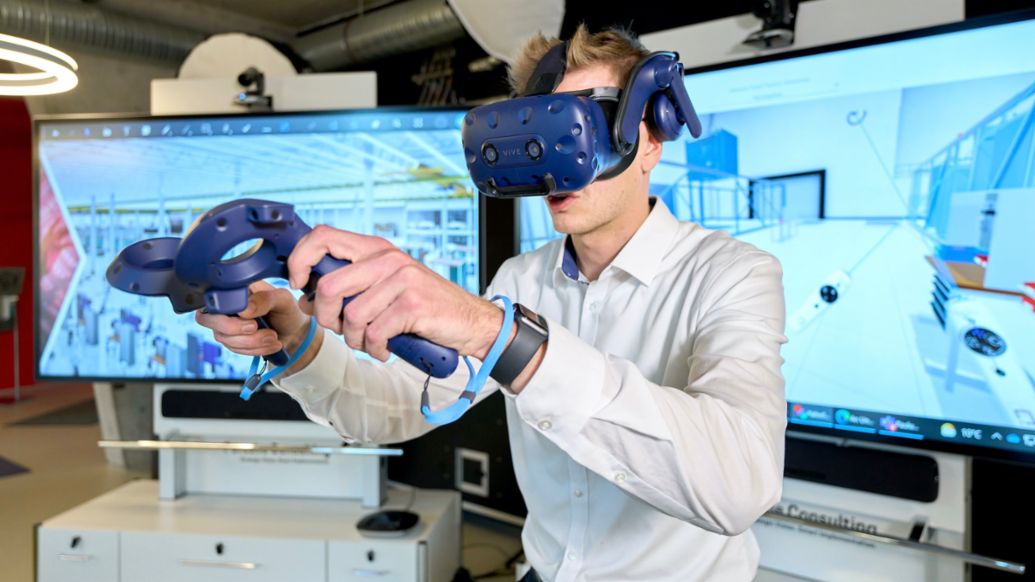
Right at the Spree River, at Stralauer Allee 12 in the German capital Berlin, stands the Innovation Lab of Porsche Consulting. During our visit, an interdisciplinary group of specialists is planning a smart factory for the Finnish construction company Admares. The new factory's production lines are displayed on two enormous screens. Modeling is done with the help of augmented and virtual reality. All the processes are digitalized, enabling actual practices in the future factory to be explored today. Weaknesses can be identified and rapidly eliminated under highly realistic conditions. Alternatives can be simulated and the results precisely calculated.
This workshop with Admares CEO Mikael Hedberg is one of more than 70 such events of one to three days that have been held since the center of expertise opened in March of 2020. All of the laboratory work can also be done on a remote and decentralized basis if needed, enabling everyone involved to take part even when working from home. "Our Innovation Lab does not operate in isolation," says manager Benjamin Bartoli. "It is fully integrated into the project work of our clients. We see ourselves as accelerators. We use high-powered technology to identify customers' needs faster and shorten the time they need to put them into practice. The rough planning for a factory, for example, can be validated in two days." That, however, requires intensive expert and content-related preparation in the form of very individually tailored workshops.
The lab's usual approach covers three fundamental elements: technical feasibility, business relevance, and customer centricity. It combines the consultants' experience and the technicians' expertise with a service-design methodology. For the workshop with Admares, the consultants brought additional specialists from other Porsche Group subsidiaries on board: IT pros from MHP and experts from Porsche Engineering.
The processes and methods of these design sprints are chosen specifically for each project. Features of this sophisticated approach include rapid iterations and tangible prototypes. And clients are favorably impressed. Dr. Matthias Schubert from TÜV Rheinland recently described the results of this new form of collaboration for his company as follows: "All in all, we were twice as productive in half the time." In the words of Admares's CEO Hedberg, "I can't imagine any other way of planning a new factory."
Transformation in the construction industry
But let’s start with a look back. In early 2018, Admares’s management began thinking in concrete terms about fundamental changes in the building sector. Couldn’t standardized production processes be used to manufacture buildings more efficiently? Wouldn’t standardization yield not only better products but also faster and more economical production processes? Might it also be possible to individualize these buildings to meet specific customer needs and desires? Can hotels, residential buildings, and hospitals be made in ways similar to cars? “We realized that in order to industrialize complete buildings, we would need a new world of production,” says Admares CEO Mikael Hedberg. “We need completely different factories.” The Finns contacted Porsche Consulting. As Hedberg continues, “Who is better equipped to help us than Porsche with its long-term experience in making the premium-quality sports cars considered the world’s leading brand?” For Matthias Möhrke, Associate Partner at Porsche Consulting, it was immediately clear that “we would help turn this brilliant idea into reality.”
Together they began working step by step to develop a digital vision of the factory of the future. No models made of cardboard or prototypes of wood. To minimize development time, they rely entirely on the virtual world. Data, images, and animations are all digital. “Now we’re going flat out,” says Hedberg. “We’re simulating real conditions, and testing and evaluating individual functions in the production process.” That includes examining how equipment processes work, whether maintenance openings are freely accessible, and whether for example the windows are all planned for the right places.
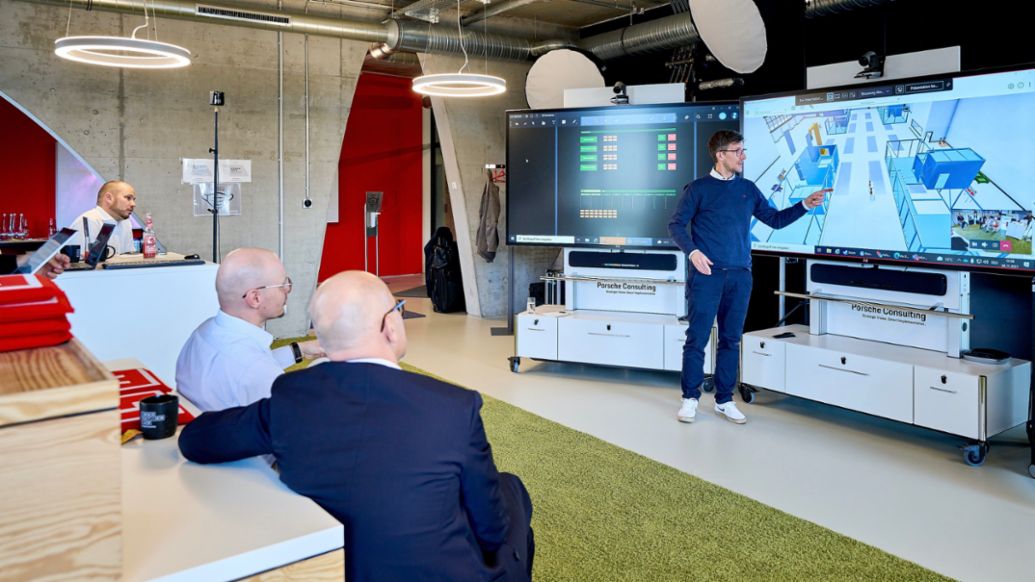
What are the main ways this production method differs from the operations of conventional construction companies? As Hedberg explains, “Up to 100 percent of the added value is generated in our factory, which enables us to achieve the highest levels of efficiency. Erecting the entire buildings in a factory means that we manufacture products instead of constructing projects on site.” The manufacturing processes for the individual building units are divided into small steps and all the crafting and trade work is planned entirely in advance. The units are completely assembled and furnished with all the pipework, ducts and cables, such as water, heating, cooling, and electricity. In order for everything to work seamlessly, Admares has to integrate the suppliers. There may not and will not be any potentially unstable supply chains outside the factory. At the actual location where the building will stand, only a few final steps are needed, such as completing plug and play connections for the building units and connecting the utility lines to public grids. “Admares will revolutionize the construction industry like Henry Ford did in the car industry with assembly-line production,” predicts Möhrke.
A "shock" for the industry
This mode of production offers clear advantages to builders and contractors. If everything runs smoothly, construction time is reduced to a minimum. A hotel, for example, should be ready to be handed over to its operators in six weeks. And thanks to higher efficiency, the costs are by an average of around 30 percent lower. Hedberg expects that his company and its new way of producing homes like cars in a factory will generate considerable interest in the construction industry. “For some competitors it could even come as a shock,” he remarks.
Admares is hoping to set an example and meet ambitious goals. “We want to show strong growth over the next five years,” says Hedberg. That includes opening more factories: The first factory in the Middle East is expected to serve as a blueprint for more. The North American market is next in line. The Finns also have their eyes on Europe. Admares and Porsche Consulting are therefore pursuing a scalable approach in their factory development work. The idea is to optimize the factories’ value-creation processes to meet the needs of each region.
Info
Text first published in Porsche Consulting Magazine.
